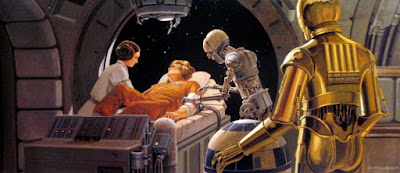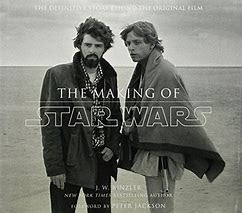Q & As About 'Star Wars': 'During Vader's confrontation with Admiral Motti, why doesn't the Dark Lord choke Governor Tarkin when he intervenes?'
'During Vader's confrontation with Admiral Motti, why doesn't the Dark Lord choke Governor Tarkin when he intervenes?' Because, as powerful and menacing as Darth Vader is, he can’t Force-choke anyone who is equal in stature, or even above Vader’s standing in Imperial hierarchy, even if he is tempted to. It’s just not something one does in a chain of command, and especially not in the ruling circles of the Galactic Empire. Understand. In Star Wars, aka Star Wars Episode IV: A New Hope, Vader is not the big bad villain representing the Empire. That role belongs to Grand Moff Wilhuff Tarkin, Governor of the Imperial Outland Territories, author of the Tarkin Doctrine, and commander of the Empire’s new Death Star battle station. He is also a confidante and friend to Sheev Palpatine, aka His Imperial Highness, Emperor Palpatine. © 1977 20th Century Fox Film Corp. In Episode IV; A New Hope, in which the “I find your lack of fai...


